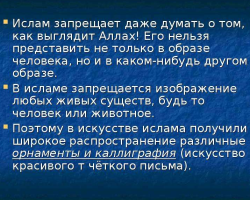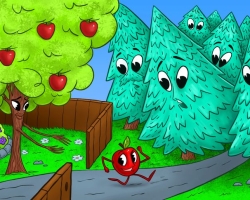There are many amazing expressions in the Russian language. They seem even more hilarious if they are found in them zones (common names, denoting animals).
Content
- "Cat cried": origin
- "Cat cried": direct and figurative meaning of phraseologism
- "Cat cried": short meaning of phraseological units
- "The cat cried": an explanation in one word
- Synonyms for phraseologism "Cat cried"
- How to make a sentence with the phraseology "Cat cried"?
- Video: How to understand Russian phraseological units to foreigners?
Some phraseological units can even make a person who is not familiar with Russian folklore, since no logical connection is traced in them. Rather, they may simply seem like a set of words that have nothing to do with each other. That's exactly how in this stable expression: "The cat cried."
"Cat cried": origin
Regarding the origin of the idiom “Cat Cryal”, there are as many as 3 versions. And although they are all controversial, but interesting.
- On the first (zoological) Versions, people have long noticed how some animals cry. This property is inherent, for example, to cows, horses, dogs. Ho is not cats in any way - despite the presence of tearful channels they have, these animals are persistent, they do not spill tears at all. True, some "cat" diseases can lead to increased tear separation, but in this case it cannot be said that the cat cries from pain or mental suffering.
- According to the second (historical and phonetic) Versions, in the origin of this idiom, ordinary confusion associated with its sound is to blame. There is a legend that in the old days, Arab merchants often pronounced the phrase “Kotyn Nailak”, which means translated "Stop receiving money". The Slavic ear perceived these two words as "the cat cried." And so it turned out that the definition of lack of money as if stood on a par with meager cat tears - which, however, is not far from the truth.
According to the third (poetic) version of the “prototype”, idioms were an old folklore children's song:
There is a kisona from the kitchen,
Her eyes were swollen.
What, Kisonka, are you crying?
How can I not cry Kison:
The cook licked the foam,
And he said to Kisonka!
All these versions have the right to exist, but no one knows about its appraisal origin-this secret was lost somewhere in the depths of centuries.
"Cat cried": direct and figurative meaning of phraseologism
The direct meaning of the phraseology "Cat Cauded":
- Due to the eye disease, some representatives of this fluffy family may appear. As a rule, they are not plentiful and are not at all the result of some cat feelings and experiences.
- But you can build a logical chain: the cat is a living creature, it has eyes equipped with lacrimal canals, therefore, it can cry.
The portable meaning of the phraseology "Cat cried":
- With this sustainable phrase, we emphasize a small amount of something, or even its absence. The ironic subtext of the phrase enhances the effect of scanty. You can use it when talking or in journalism. But if, for example, a business meeting, a scientific conference, or you are in an official setting, or write a school essay, then in this case it is better to do without this figurative expression.
"Cat cried": short meaning of phraseological units
- In a figurative meaning, phraseologism “Cat cried” means: little, little, nothing, almost none. This becomes clear not from the semantic meaning of the phrase, because we have already found out that cats do not cry.
- The crying cat is the fruit of folk fantasies, humor, ingenuity and ability to subtly notice figurative contradictions. Therefore, the expression "cat cried" is considered lithota, expressive underminingThe basis of which is the impossibility of cat sobs.
"The cat cried": an explanation in one word
- The expression “cat cried” means that something (objects, time, money, thoughts, etc.) is so little that this meager amount can be neglected at all.

Synonyms for phraseologism "Cat cried"
- “A handful”, “droplet”, “a little”, “a little”, “just”, “with Gulkin’s nose”, “once or twice,” “with a little finger”.
How to make a sentence with the phraseology "Cat cried"?
Examples of proposals:
- I won’t take a taxi, I have money in my wallet “The cat cried”.
- And what purchases do you have for your purchases?
- Today I have a "cat" only on the subway.
- I hurry to work, but I have time left - "The cat cried."
We will also talk about such phraseological units:







